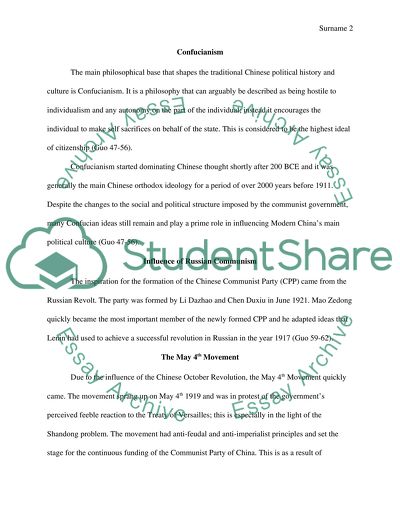Cite this document
(“Chinese politics and government Essay Example | Topics and Well Written Essays - 1500 words”, n.d.)
Retrieved from https://studentshare.org/history/1458454-chinese-politics-and-government
Retrieved from https://studentshare.org/history/1458454-chinese-politics-and-government
(Chinese Politics and Government Essay Example | Topics and Well Written Essays - 1500 Words)
https://studentshare.org/history/1458454-chinese-politics-and-government.
https://studentshare.org/history/1458454-chinese-politics-and-government.
“Chinese Politics and Government Essay Example | Topics and Well Written Essays - 1500 Words”, n.d. https://studentshare.org/history/1458454-chinese-politics-and-government.


